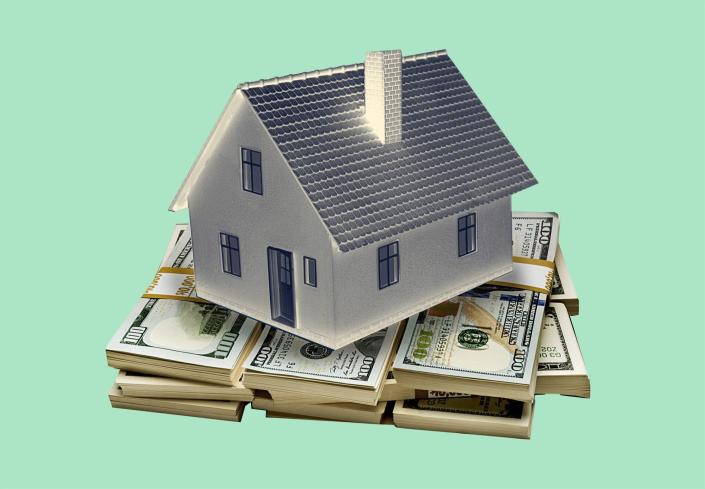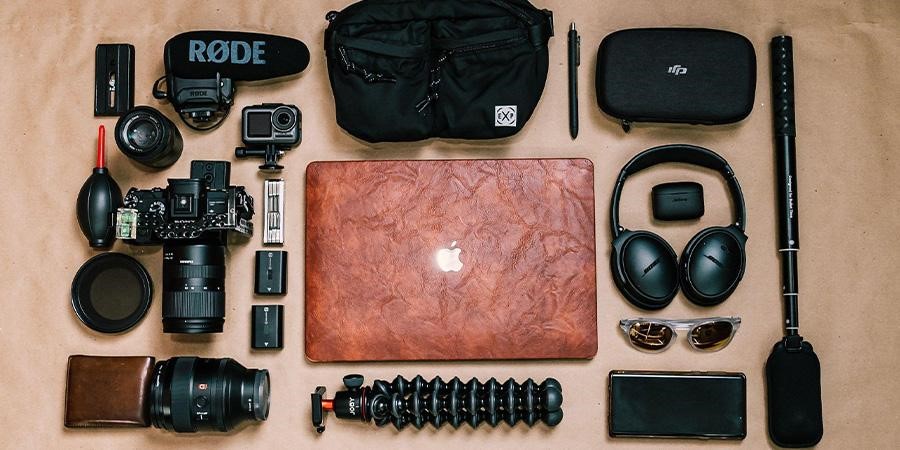
Andrew Unangst/Getty Images
TABLE OF CONTENTS
-
On This Page
-
Savings
-
Interest Rates
-
Attractiveness to Buyers
-
Closing Costs
-
Downsides to Cash Offers
-
Tax Implications
-
Opportunity Costs
-
Expenses and Emergencies
-
Delayed Financing
-
In a hyper-competitive housing market, prospective buyers are pulling out all the stops to close bids on new homes—and for some, the winning tactic is a cash offer. In February 2022, 25 percent of home offers were all-cash, according to data from the National Association of Realtors, and in 2021, all-cash offers were more than four times as likely to win a bidding war.
With these chances, it’s no surprise that prospective homebuyers have been going out of their way to make these offers. “Our quarterly report reveals that 57 percent of agents have seen buyers leverage their own retirement or securities funds to pay cash for a home,” says Laura Tonelli, home trends expert at HomeLight, a San Francisco-based real estate referral company. In addition, she says that 49 percent of real estate agents polled have seen buyers take out a home equity loan or home equity line of credit for this purpose, and 38 percent of agents have seen buyers get short-term loans from friends or family.
So, you may have enough money to consider buying a house with cash. But is that a wise decision?
“Paying cash for a home as opposed to financing all or part of it is a big decision, and really should be made with the help of an accountant and/or a financial advisor,” advises Bill Golden, realtor and associate broker at RE/MAX Around Atlanta. “Tax consequences need to be considered, both for the current situation and as a long-term investment—and every situation is different.”
Below, learn all the factors you should weigh if you’re considering paying cash for a house.
RELATED: 4 Steps You Must Take If You Want to Buy a House in the Next Year
Long-term savings on the cost of the house
If your goal is to save money on the overall cost of the home, paying cash definitely provides an advantage. “If you can buy a home all-cash, you are spending less to purchase the same asset,” says Ryan Serhant, founder and CEO of SERHANT. “By the time you finish paying off a mortgage, the home is going to cost you more than the initial purchase price because of the interest.”
Serhant’s view is shared by Brielle Mabrey, Washington, D.C.-based personal finance coach and founder of the financial empowerment firm Wisdom Then Wealth. “Two words provide significant motivation to buy a house with cash if you can do so: amortization schedule.” This refers to the amount of principal and interest you’ll pay over the term of the loan.
“For example, on a $240,000 mortgage at a 3.5 percent fixed interest rate with 360 monthly payments, you will pay $147,974 in interest on a standard payment schedule,” she explains. “The total paid will be $387,974, with you paying 61.7 percent of your loan amount in interest.”
Interest rates
On the other hand, interest rates (although rising) are still pretty low. “Home mortgages tend to be one of the most affordable ways that individuals can access finance capital,” says Aaron Dorn, chairman, president, and CEO of Studio Bank in Nashville, TN. “Many mortgage rates are actually lower than national inflation rates, which can further compound the long-term value of having a mortgage.”
Even though Serhant admits that paying cash means you’re spending less money, he doesn’t recommend that option exclusively. “I’m also a big proponent of mortgages, especially while interest rates are still low, because you can grow your money faster by diversifying asset classes instead of having everything tied up in one property,” he says. Of course, he adds, you’ll need to evaluate the approach that works best for you and your financial situation.
Attractiveness to buyers
Paying cash can also make you the most popular bidder. “In a hyper-competitive buyer’s market like we are experiencing now, making a cash offer will likely give you an advantage over many other buyers who aren’t able to do so,” Golden says. “A seller will be more likely to accept a cash offer than one with a financing contingency, because it’s more of a ‘sure thing,’ and it doesn’t require you to get an appraisal on the property, which is one less thing a seller may have to worry about with a cash offer.”
And this can be particularly important when there are multiple offers on the home and everyone else is financing the purchase. “I represented a buyer in a recent eleven-way bidding war, and our offer won in part because the buyer was prepared to pay all cash,” says Rachel Ostow Lustbader, a broker at Coldwell Banker Warburg in New York City.
Save on closing time and costs
In addition to saving on the lifetime cost of a mortgage, paying cash for a house can save money in other ways. “There are also substantially more closing costs involved in buying a property with financing than if you pay cash, so that needs to be taken into account as well,” Golden says. “Make sure you have your realtor and/or mortgage professional counsel you on what those costs are, and how much you would save by paying cash.”
Cash offers can also save on time during the closing process. “Purchasing a home using cash is much more straightforward than using a mortgage,” says Tyler Forte, CEO of Freshbuilds, a general contracting company specializing in interior renovations. “For one, you won’t have to deal with a lender or their team of underwriters.” And, he says, you won’t have to get an appraisal, which will save both time and money. “The closing process, which typically takes around 30 days when you finance a home purchase with a mortgage, can now be shortened to as few as 10 days.”
But, will cash always win?
In some scenarios, an all-cash offer may not provide the advantage you think it would. “In a normal market, cash buyers are able to negotiate discounts that mortgaging buyers are not able to receive,” explains John Walkup, co-founder of UrbanDigs, a real estate analytics company. Sellers would give these discounts because cash offers aren’t as risky and time-consuming.
“However, when a market suffers a shortage of supply, the cash discount can actually turn into a premium, as the cash buyer will have to compete against mortgage buyers on price and sellers on time,” Walkup says. In other words, when mortgage buyers bid up and sellers realize that they’re willing to do whatever it takes, he explains this may produce an undesirable effect. “Sellers, sensing the competition, have no desire to do a discounted deal when tomorrow’s prices will be greater than today’s,” Walkup says.
What about taxes?
“While I don’t think tax policy alone is a good reason to make a major financial decision, you will lose the mortgage interest break on your income taxes [when you pay cash],” warns Sonja Breeding, a certified financial planner and vice president of investment advice at Rebalance, a financial planning services hub. “Since interest payments are higher earlier in the loan life, that home-loan tax break is larger when you are younger; it’s worth more to you now compared to later on.”
So it’s worth talking to a financial advisor about your options. “While a seemingly minor calculation, in the context of a well-constructed financial plan, lower taxes could have a real impact down the road,” Breeding says. “For instance, a recurring tax break early in your life might increase your ability to save into a 401(k), helping to build wealth over your career.”
Dorn agrees, adding that tax-deductible mortgage interest can have a huge impact. “For many, this means that the annual net impacts of their housing payments are effectively less than the costs of their interest rates alone,” he says. “For instance, while your interest rate may be four percent, the net cost may not actually be that high.”
Opportunity costs
The subject of building wealth leads us to opportunity costs. According to Jeff Gravelle, co-head of production at mortgage company Newrez, you might save money by not having a mortgage payment or having to pay interest. “But you are also sacrificing liquidity of your assets,” he says. “By putting all your savings into a home, you are going to have less money to invest and could therefore miss out on a return that is much larger than what you’ve saved on interest.”
And that’s why Dorn says any conversation evaluating the merits of paying with cash or getting a mortgage should include opportunity costs. “There are several reasons why people with cash still choose to finance their homes, and many people—including millionaires and billionaires—choose mortgages for financial reasons,” he says.
Consider this fact: Historically, the average stock market return is about 10 percent, “which, today, is a much higher rate than mortgage interest rates,” says Kimberly Jay, a broker at Compass in New York City. “You could be making money with your money, instead of locking it up in your home.”
But again, as all of our experts have recommended, Mabrey advises talking to a financial advisor. “You would need to run the numbers to ensure your returns would significantly out-earn the interest you would pay to the bank and the returns you would receive if that mortgage interest was invested instead,” she says. “There is also the psychological benefit of being able to kick your legs up in a paid-for home and watch your investment portfolio grow with funds that may have otherwise lined a bank’s pockets.”
Expenses and emergencies
Owning your home outright can provide peace of mind. According to Jay, you’ll never have to worry that you won’t be able to make future mortgage payments. “But it may not be the best financial decision, because you don’t want to have all your money tied up in your house,” she says, explaining that you’ll need enough money on hand to cover both normal expenses and emergencies. “If you’re thinking that you can always take out a home equity loan if you need to, consider that your credit score may go down, or that you may lose your income stream,” she says.
Cash now, mortgage later
If your motive for paying cash for a home is based on being competitive, there may be a compromise. “What I have seen more often lately, due once again to the competitive buyer’s market, is to pay cash for the property and then turn around and get a mortgage on it later if that makes more sense for you,” Golden says. This is known as delayed financing.
However, he warns that financing later could be at a higher rate. It’s a strategy that Christopher Totaro, an agent at Coldwell Banker Warburg, has observed as well. “The real estate market is so competitive that if you want an edge, you may purchase with cash so there are no delays in financing for a seller to consider—and you are now a more competitive purchaser,” he says. “Many cash buyers will take out a mortgage after closing because the cost of borrowing is low, and they believe they can better utilize their cash by investing it.”
As with many major financial decisions, there are pros and cons to buying a house with cash. So, before you make the bid, it’s important to consider all of the above factors and make sure your short-term motives and long-term goals are in alignment.






More Stories
How to turn your front garden into a space for entertaining
Things a Good Real Estate Agent Will Do
Today’s Homeowner Radio Podcast | September 24, 2022